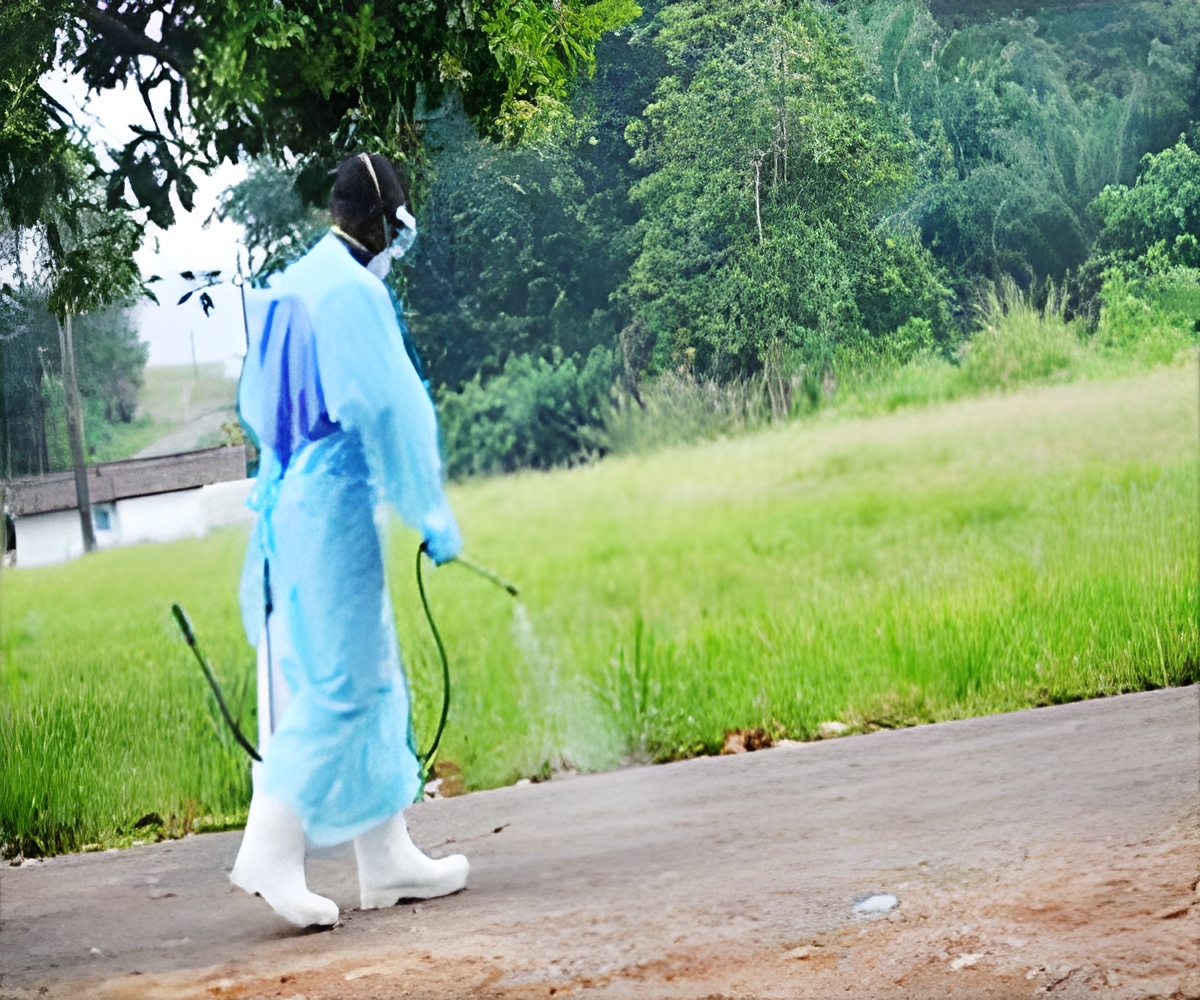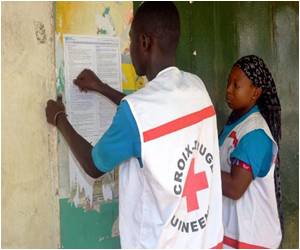
Media keep close tabs of each new suspected case reported outside of the hardest hit countries, Guinea, Liberia and Sierra Leone, where nearly 1,000 people have died in what the World Health Organisation (WHO) on Friday termed a "public health emergency".
"It's a dramatic disease," said virologist John Oxford of the Queen Mary College in London of the fear that has led to calls from some quarters for people carrying the virus to be denied entry into a country.
"One of the main reasons is the way the disease looks. It's a dramatic affair if people are vomiting blood."
Add to this a high mortality rate up to 90 percent and the fact that no cure or vaccine exists -- experts compare the growing fear to the world's reaction to the 1950s polio outbreak and the advent of AIDS in the 1980s, two other "dramatic" but controllable diseases.
"When you see people suffering and it seems painful and extreme, then people want to do whatever they can to avoid that," said Jennifer Wild, a University of Oxford clinical psychologist specialising in anxiety.
Advertisement
Yet virologists believe the virus that causes Ebola poses little threat of a global pandemic as it doesn't spread easily and can be easily killed with water and soap.
Advertisement
- 'Irrational fear counter-productive' -
Irrational fear can only hamper efforts to curtail it, say the experts, and education is key.
There have been reports of scared relatives removing ill family members from hospital -- putting themselves and others at risk of catching the virus, and of villagers barring access to health workers they suspect of making people sick.
Fear has also raised its head in the West, like American business magnate and television personality Donald Trump arguing that a doctor who contracted the virus while helping patients in West Africa should be barred from returning to US soil.
"People need to know that this is an infection, it moves from person to person... and to understand that hygiene and social distance can break the chain of infection and stop it," Oxford told AFP.
"Even if there were to be a case (of Ebola) in the United States or in France or in England, I just cannot feel that it would spread... maybe just to very, very close family."
According to Marc Sprenger, director of the European Centre for Disease Prevention and Control, there was a possibility of infected persons arriving with the virus by plane or ship without even knowing they were sick.
But once there, he agreed it was "unlikely" to spread.
"Transmission requires direct contact with blood, secretions, organs or other bodily fluids of dead or living infected persons or animals," he said.
"The risk of infection is considered very low if elementary precautions are followed" -- basic hygiene and avoiding the sick or dead.
"Our modern societies have to be sensible about infection," added Oxford, who warned that fear "can lead to irrational behaviour".
The WHO on Friday urged screening of all people flying out of affected countries and called for high vigilance.
It stopped short of calling for global travel restrictions in an announcement virologists described as "proportionate" to the threat level.
There have been many outbreaks of Ebola, firmly rooted in west and central Africa, where bats serve as a virus reservoir.
Initial symptoms include fever, weakness, muscle pain, headache and a sore throat followed by vomiting, diarrhoea, rash, impaired kidney and liver function, and in some cases internal and external bleeding.
Source-AFP









